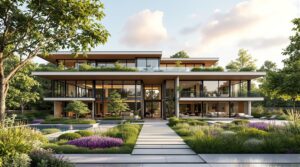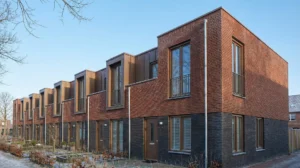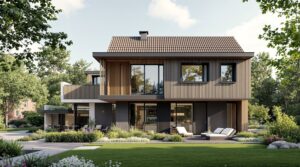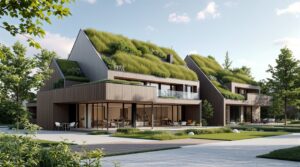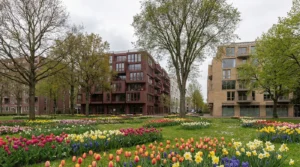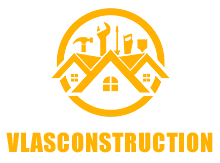Home Renovation Tips for Maximum Comfort and Well-Being
Introduction
Renovating your home is a significant undertaking that can greatly impact your comfort, well-being, and quality of life. In the Netherlands, where there is a growing emphasis on energy efficiency and healthy living, home renovations are not just about aesthetic changes but also about creating a sustainable and comfortable living environment. This article will provide comprehensive tips and insights for Dutch residents looking to renovate their homes, focusing on key aspects such as structural integrity, budgeting, design, and the impact of renovations on health and well-being.
Basic Concepts
Before diving into the specifics of home renovation, it is essential to understand some basic concepts:
- Structural Integrity: The foundation, walls, floor systems, and roof structure of your home.
- Energy Efficiency: Improvements that reduce energy consumption and costs.
- Aging-in-Place: Modifications that allow older adults to live safely and comfortably in their homes as they age.
- Healthy Living: Renovations that enhance physical and mental health through better insulation, ventilation, and design.
Understanding Your Home’s Structural Integrity
When starting a home renovation project, it is crucial to assess the structural integrity of your home. Here are the steps to follow:
Inspect the Foundation and Structure
- Foundation: Check for cracks, unevenness, or signs of water damage.
- Walls and Floor Systems: Ensure they are stable and free from significant damage.
- Roof Structure: Inspect for leaks, sagging trusses, or rotting frames.
Professional Inspections
- Hire engineers or structural experts to identify potential problems that may not be immediately visible.
- Address any issues before they become major problems during the renovation process.
Budgeting Smart
Budgeting is a critical component of any home renovation project. Here’s how to approach it:
Determine Your Budget
- Calculate your total expenditure, including materials, labor, and any unexpected costs.
- Consider your income and financial constraints to avoid overspending.
Prioritize Spending
- List your needs and wants to allocate your budget effectively.
- Ensure you have all necessary permits and approvals before starting the project to avoid legal issues.
Designing Your Dream Space
The design phase is where you can really make your home renovation shine. Here are some key considerations:
Aesthetic Decisions
- Choose a style that resonates with you, whether it’s minimalist, modern, bohemian, or rustic.
- Consider color schemes, textures, lighting, and furniture styles that align with your taste.
- Use resources like interior design magazines, Pinterest boards, or consult with an interior designer.
Functional Considerations
- Ensure the layout of each room serves its intended purpose efficiently.
- For example, in a kitchen, maintain the ‘work triangle’ of the sink, stove, and refrigerator.
- In a living room, consider seating, viewing angles for televisions, and sound systems.
Practical Tips for a Successful Renovation
Prepare for Disruption
- Renovation work can be noisy and messy. Be prepared for dust and debris.
- Cover or relocate valued possessions and furniture during the renovation period.
Involve Professionals
- Hire experienced contractors and specialists to handle different aspects of the renovation.
- Ensure clear communication and a well-defined project timeline to avoid misunderstandings.
Consider Energy Efficiency
- Improvements such as better insulation, energy-efficient heating, and proper ventilation can significantly enhance comfort and reduce energy costs.
- These changes can also have positive impacts on physical and mental health, especially for vulnerable individuals.
The Impact of Renovations on Health and Well-Being
Physical Health Benefits
- Improved thermal comfort and warmer, drier indoor environments can reduce the development of damp and mold, leading to better self-rated health, improved cardio-respiratory health, and fewer asthma symptoms[3].
- Upgraded kitchens and bathrooms with easier cleanable surfaces can improve housekeeping behavior and reduce dust and mold, contributing to overall physical health.
Mental Health Benefits
- Renovations that improve thermal comfort, increase usable space, and enhance design can reduce stress related to leakages, damp, and mold.
- These improvements can also increase housing satisfaction, pride in the home, and feelings of emotional security and control, leading to improved mental health.
Social Benefits
- Renovated homes can reduce social isolation by making residents feel more comfortable inviting visitors.
- Improved neighborhood identity and community cohesion can also result from well-designed and energy-efficient renovations.
Aging-in-Place Considerations
For older Dutch homeowners, aging-in-place is a critical aspect of home renovations. Here are some key points to consider:
Adaptations for Mobility
- Install non-step flooring, walk-in showers, and railing or stair-lifts to increase control over the home environment.
Energy Efficiency and Financial Well-being
- Renovations that improve energy efficiency can contribute to financial well-being by reducing energy costs.
- However, there is often a gap in knowledge about appropriate interventions, and energy-efficient renovations are often enmeshed in wider home-making considerations.
Holistic Considerations
- Aging-in-place involves not just physical adaptations but also maintaining routines, connections, and social relations in the home and neighborhood.
- These aspects significantly impact the general well-being of older homeowners and their ability to age in place.
Dutch Policy Context
In the Netherlands, recent policies such as the reform of long-term elderly care and the Climate Agreement are relevant to home renovations:
Long-term Elderly Care Reform
- This policy emphasizes the importance of maintaining older adults in their homes through appropriate adaptations and improvements.
Climate Agreement
- The focus here is on sustainable retrofitting of housing to improve energy efficiency and reduce environmental impact.
- However, there is a discrepancy between policy goals and the actual willingness and ability of older homeowners to pursue energy-efficient home improvements.
Conclusion
Renovating your home in the Netherlands can be a rewarding experience that enhances your comfort, well-being, and quality of life. By understanding your home’s structural integrity, budgeting smartly, designing with both aesthetics and functionality in mind, and considering the impact on health and well-being, you can ensure a successful renovation project. Whether you are looking to age in place or simply create a more comfortable living environment, careful planning and execution are key.
Final Tips
- Plan Thoroughly: Take time to plan every aspect of your renovation.
- Communicate Clearly: Ensure all stakeholders, including contractors and family members, are on the same page.
- Prioritize Health and Well-being: Consider how your renovations can improve your physical and mental health.
- Seek Professional Advice: Consult with experts to address any structural, design, or energy efficiency concerns.
By following these tips and considering the unique context of home renovations in the Netherlands, you can create a home that is not only beautiful but also comfortable, sustainable, and conducive to healthy living.


